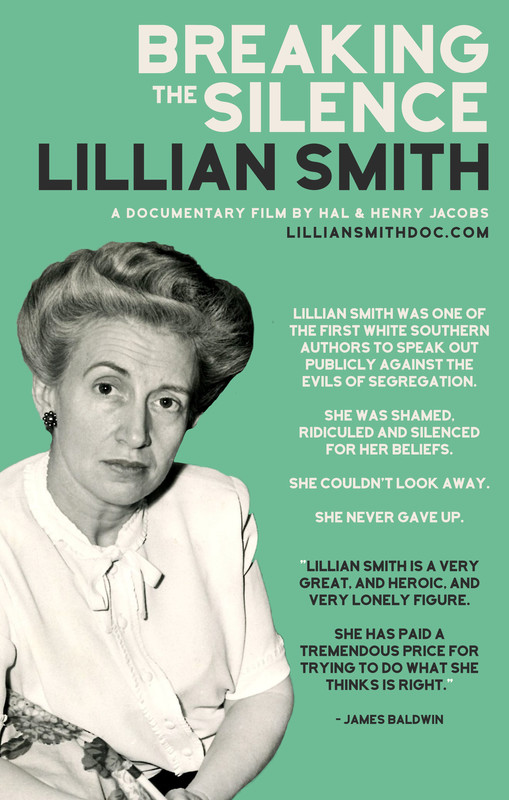Second Annual Morehouse College Human Rights Film Festival Showcases Lesser-Known Social Justice Heroes

“Lillian Smith: Breaking the Silence” tells the story of a white woman from north Georgia who fought for racial equality.
Hal and Henry Jacobs
The concept of social justice has been essential to Morehouse College since the illustrious school was founded in 1867. This week begins the second annual Morehouse College Human Rights Film Festival.
“City Lights” host Lois Reitzes spoke with Jenn Sapp, the Event Coordinator for the Morehouse Human Rights Film Festival. They were also joined by director Hal Jacobs, whose film “Lillian Smith: Breaking the Silence” will be streamed on Sept. 26 at 4 p.m.
Lillian Smith was a white, highly-educated Southern woman who was a trailblazer of her time. Raised in North Georgia, she was immersed in the evils of segregation until a pivotal moment in her life.
“When she was working in China for three years as a piano teacher at a missionary school, she saw the way the Europeans were treating the Chinese and it made her reflect on the way she had grown up in the South and her racial attitudes that she had,” said Jacobs.
After Smith returned to North Georgia, she knew she had to fight for the oppressed. Her parents owned a summer camp for young girls called “Laurel Falls.” After taking over as the director, she decided to use the camp as a platform for teaching the younger generations about the issues of white supremacy and racial oppression. In 1944, she wrote a widely-popular and controversial book called, “Strange Fruit.”
“I think she really dissected a small Southern town and showed members from the community a very diverse cross-section, Black and white. She tried to inhabit the minds and consciousness of the Black people in the town and several whom had gone to college. She shows this relationship between a white doctor’s son and a Black woman..and to Lillian Smith, she was just writing a love story,” said Jacobs.
The book was simultaneously a best-seller and banned from certain book stores. She was later deemed a traitor of the South for her stance on gender and racial equality. Martin Luther King Jr. wrote her often and considered her a friend.
In the film, Civil Rights activist Lonnie King Jr. said “It was important for me to have someone articulating the things I was articulating who didn’t look like me.”
“She’s just one of those lost voices in our Southern history. She’s one of those voices we need now more than ever. She should be a hero and role model to those facing the issues of today,” said Jacobs.
She denounced the South’s racism and ‘separate but equal’ policies until her dying day in 1966.
Morehouse College will also host workshops such as “Character Development in Documentary Story Telling” and “The Artivism of Short Filmmaking.” There will be two post-screening discussions as well. More information can be found here.





